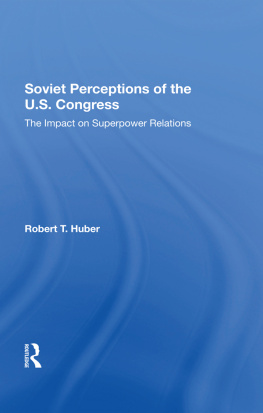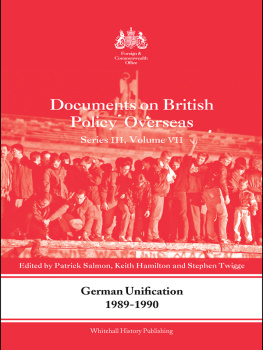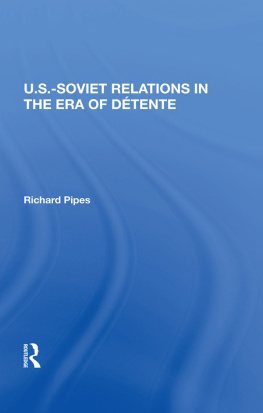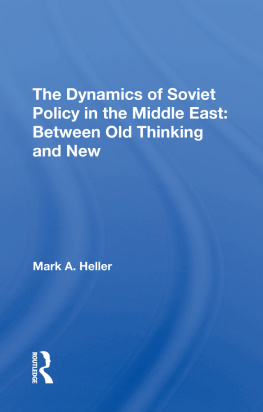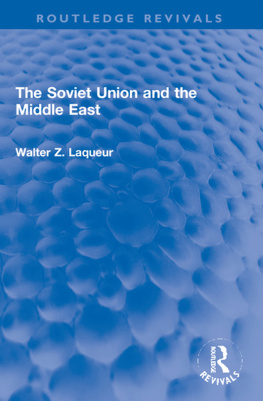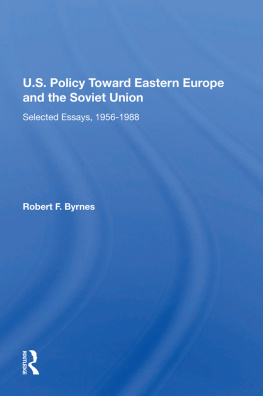FOREIGN AND COMMONWEALTH OFFICE
DOCUMENTS ON
BRITISH POLICY OVERSEAS
EDITED BY
R. A. SMITH, PhD
P. SALMON, PhD
AND
S. TWIGGE, PhD
SERIES III
Volume VIII
WHITEHALL HISTORIES: FOREIGN AND COMMONWEALTH OFFICE PUBLICATIONS
Series Editor: Patrick Salmon
ISSN: 1471-2083
FCO historians are responsible for editing Documents on British Policy Overseas (DBPO) and for overseeing the publication of FCO Internal Histories.
DBPO comprises three series of diplomatic documents, focusing on major themes in foreign policy since 1945, and drawn principally from the records of the Foreign and Commonwealth Office. The latest volumes, published in Series III, are composed almost wholly of documents still unavailable to the public.
Since the early 1960s, several Internal Histories have been prepared by former or serving officers, the majority of which concentrated upon international developments and negotiations in which the UK has been directly involved. These were initially intended for use within the FCO, but some of the more substantial among them, studies that offer fresh insights into British diplomacy, are now being declassified for publication.
Published DBPO volumes:
SERIES I: 1945-1950
Volume I: The Conference at Potsdam, July-August 1945
0 11 591682 2
Volume II: Conferences and Conversations, 1945: London, Washington and Moscow
0 11 591683 0
Volume III: Britain and America: Negotiation of the US Loan, 3 August-7 December 1945
0 11 591684 9
Volume IV: Britain and America: Atomic Energy, Bases and Food, 12 December 1945-31
July 1946
0 11 591685 7
Volume V: Germany and Western Europe, 11 August-31 December 1945
0 11 591686 5
Volume VI: Eastern Europe, August 1945-April 1946
0 11591687 3
Volume VII: The UN, Iran and the Cold War, 1946-1947
0 11 591689X Volume VIII: Britain and China, 1945-1950
0 7146 5164 8
Volume IX: The Nordic Countries: From War to Cold War, 1944-1951
978 0 415 59476 9
SERIES II: 1950-1960
Volume I: The Schuman Plan, the Council of Europe and Western European Integration,
May 1950-December 1952
0 11 591692X Volume II: The London Conference: Anglo-American Relations and Cold War Strategy,
January-June 1950
0 11 591693 8
Volume III: German Rearmament, September-December 1950
0 11 591694 6
Volume IV: Korea, June 1950-April 1951
0 11 591695 4
SERIES III: 1960-
Volume I: Britain and the Soviet Union, 1968-1972
0 11 591696 2
Volume II: The Conference on Security and Co-operation in Europe, 1972-1975
0 11 591697 0
Volume III: Detente in Europe, 1972-1976
0 7146 5116 8
Volume IV: The Year of Europe: America, Europe and the Energy Crisis, 1972-1974
0 415 39150 4
Volume V: The Southern Flank in Crisis, 1973-76
0 7146 5114 1
Volume VI: Berlin in the Cold War, 1948-1990
978 0 415 45532 9
Volume VII: German Unification 1989-1990
978 0 415 55002 4
DOCUMENTS ON BRITISH POLICY OVERSEAS
Series III, Volume VIII
The Invasion of Afghanistan and UK-Soviet Relations 19791982
First published 2012
by Routledge
2 Park Square, Milton Park, Abingdon, Oxon, OX14 4RN
Simultaneously published in the USA and Canada
by Routledge
711 Third Avenue, New York, NY 10017
Routledge is an imprint of the Taylor & Francis Group, an informa business
2012 Crown Copyright
The right of Richard Smith, Patrick Salmon and Stephen Twigge to be identified as editors of this work has been asserted by them in accordance with sections 77 and 78 of the Copyright, Designs and Patents Act 1988.
All rights reserved. No part of this book may be reprinted or reproduced or utilised in any form or by any electronic, mechanical, or other means, now known or hereafter invented, including photocopying and recording, or in any information storage or retrieval system, without permission in writing from the publishers.
Published on behalf of the Whitehall History Publishing Consortium. Applications to reproduce Crown copyright protected material in this publication should be submitted in writing to: HMSO Copyright Unit, St Clements House, 216 Colegate, Norwich NR3 1BQ. Fax: 01603 723000. E-mail: copyright@hmso.gov.uk
British Library Cataloguing in Publication Data
A catalogue record for this book is available from the British Library
Library of Congress Cataloging in Publication Data
A catalog record has been requested for this book
ISBN13: 978-0-415-67853-7 (hbk)
ISBN13: 978-0-203-12108-5 (ebk)
PREFACE
This volume examines British policy towards the Soviet Union in a period dominated by the aftermath of the invasion of Afghanistan in December 1979 and the imposition of martial law in Poland in December 1981. The British government faced a dilemma: namely, how to express strong disapproval of Soviet actions while still attempting to maintain a constructive bilateral relationship and at the same time to keep British policy in line with the Western Alliance. The consistent aim during this period was to maintain Western unity and impress on the Soviets that stable and productive East-West relations were only possible on the basis of political and military restraint.
The UKs relations with the Soviet Union had been strained since the Second World War, punctuated by brief honeymoons, the last of whichthe Wilson-Brezhnev new phase of 1975was coming to an end when the volume opens.
In the meantime Peter Blaker, Minister of State at the FCO, set out the approach he thought the government should adopt towards East-West relations, taking up the clear lead set by Mrs Thatcher in opposition. These sentiments were incorporated into the policy paper of 7 December, which clearly depicted the Soviet threat in belligerent terms.
The Soviet invasion of Afghanistan
The decision by the Soviet Union to intervene in Afghanistan had evolved gradually over the course of 1979. On Christmas Eve Soviet troops began to move into Afghanistan, and on the evening of 27 December they launched a coup in which Amin was killed and Babrak Karmal, brought from exile in Eastern Europe, was installed as head of a new government (No. 21).
The events leading up to the Soviet invasion did not go unnoticed in the West. In June 1979 the British embassy in Moscow anticipated a further strengthening of the Soviet military presence to defend the Afghan revolution, especially if a deteriorating internal situation could be blamed on external intervention and it could be argued that there was a threat to the security, independence and territorial integrity of Afghanistan within the terms of article 4 of the Soviet-Afghan Friendship Treaty.
The invasion marked a watershed in East-West relations and confirmed perceptions of the Soviet threat set out in the 7 December despatch. This was the first occasion since the Second World War on which the Soviet Union had used armed force outside the borders of the Warsaw Pact, although it continued a trend for intervention established by using Soviet proxies, such as the German Democratic Republic (GDR, East Germany) in South Yemen, and Cuba in Angola and Ethiopia. The official Soviet explanation for the invasionthat they had intervened at the invitation of the Afghan authorities in response to outside interference in the country and had had no hand in the coupwas unconvincing. The message from Karmal, announcing that he was taking over the government, was broadcast on Kabul Radios wavelength but from a transmitter inside the Soviet Union. Kabul Radio was still transmitting music at the time. The clumsy international presentation indicated to Sir Curtis Keeble, the British Ambassador in Moscow, either carelessness for detail or a remarkable contempt for international opinion (No. 24).


